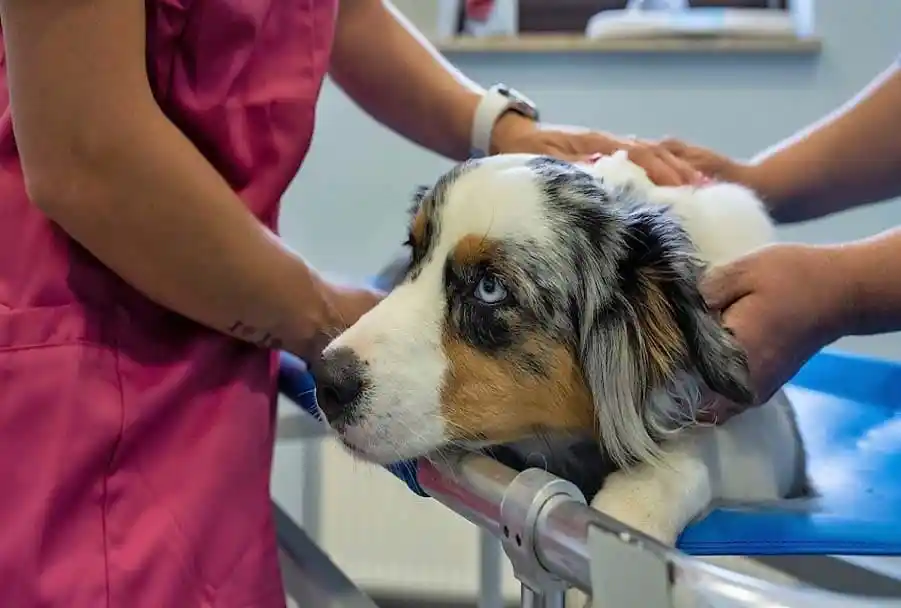Respiratory health significantly impacts a dog’s overall well-being. Understanding the signs, treatments and preventive measures for respiratory issues is fundamental for every dog owner. This comprehensive guide sheds light on various aspects of dog respiratory diseases.
Signs of Respiratory Problems in Dogs
Dogs may exhibit signs of respiratory distress, including persistent coughing, wheezing, nasal discharge, and fatigue. Observing these signs prompts timely veterinary consultation.
Treatment of Respiratory Diseases in Dogs
Professional veterinary care remains the cornerstone for treating respiratory issues. Medications, oxygen therapy, and sometimes hospitalization are necessary for severe cases.
Common Respiratory Diseases in Dogs
- Kennel Cough: A highly contagious infection causing a dry, hacking cough.
- Pneumonia: Inflammation of the lungs often due to bacterial or viral infections.
- Asthma: Characterized by recurrent episodes of coughing, wheezing, and breathing difficulties.
- Bronchitis: Inflammation of the airways leading to coughing and breathing issues.
- Nasal Infections: Infections causing discomfort and nasal discharge.
Contagious Nature of Dog Respiratory Diseases
Several respiratory illnesses, like kennel cough and specific pneumonias, are contagious. Close contact with infected dogs or contaminated areas can spread these diseases.
Best Medicines for Treating Dog Respiratory Diseases
Veterinarians prescribe suitable medications based on the specific condition. Antibiotics, bronchodilators, and anti-inflammatory drugs are commonly used, administered as per the vet’s guidance.
Home Remedies and Care for Dog Respiratory Issues
While professional care is essential, some home remedies aid in managing symptoms. Humidifiers, steam therapy, and maintaining a clean environment can ease a dog’s respiratory discomfort.
Dog Respiratory Infections and Suggested Treatments
- Nasal Discharge: Gently wipe away discharge using a damp cloth. Seek vet advice for persistent discharge.
- Coughing: Ensure a calm environment and maintain proper hydration. Vet-prescribed cough suppressants might be necessary.
- Wheezing and Breathing Difficulty: Administer prescribed bronchodilators or nebulization as directed by the vet.
- Fatigue/Lethargy: Ensure a comfortable resting area and offer adequate rest. Consult a vet for persistent lethargy.
Preventive Care to Safeguard Dogs Against Respiratory Diseases
- Maintain Good Hygiene: Regularly clean living spaces and dog accessories to reduce the risk of infections.
- Vaccination: Ensure your dog’s vaccinations, including those against common respiratory infections, are up-to-date.
- Avoid Polluted Areas: Minimize exposure to smoke, dust, and other pollutants that can irritate the respiratory system.
- Regular Vet Check-ups: Schedule routine check-ups to detect any potential respiratory issues early.
Life Expectancy and Lung Disease in Dogs
Life expectancy varies based on the severity and type of respiratory disease. With proper management, many dogs lead fulfilling lives despite respiratory issues.
Respiratory Disease in Older Dogs
Elderly dogs are more susceptible to respiratory problems due to weakened immunity. Regular vet check-ups and a stress-free environment assist in managing these conditions effectively.
Addressing the Mystery Illness Affecting Dogs
Periodic mysterious illnesses affecting dogs require vigilance. Prompt veterinary attention for unexplained symptoms is crucial for timely intervention.
Recognizing signs, understanding treatments and implementing preventive measures are critical in managing and ensuring a dog’s well-being with respiratory diseases. Responsible pet care and timely vet consultations play key roles in enhancing a dog’s quality of life.
That sounds like an inspiring and heartwarming story about triumphing over Cushing’s Disease in dogs! If you have a specific question or need assistance with this topic or any related content, please let me know. I’d be happy to help!


